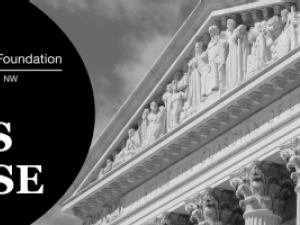Canada's largest railway has been using management personnel to replace the 2,800 striking freight train conductors and switchyard personnel, and says service is "at a level comparable to before the strike began."
Leaders of the Canadian locals of the United Transportation Union were not available for comment, but media reports quoted union officials as saying they would end the walkout if the Canadian Industrial Relations Board (CIRB) ruled against them.
The labor dispute has been unusual because it has sparked a public clash between the UTU's Canadian leadership and the union's international leaders in the United States who said they had not approved the strike yet.
"I firmly believe that delaying the strike action would have, in the end, resulted in a much longer strike and would severely diminish our position at the bargaining table," Sylvia LeBlanc, one of the UTU negotiators, wrote in a letter to UTU members in British Columbia.
Montreal-headquartered Canadian National contends the strike is illegal because it was not properly authorized by the UTU's international headquarters.
No major service disruptions were reported, but shippers worried that a prolonged strike could further aggravate shipping delays caused by storms earlier this year on Canada's Pacific Coast.
Port officials in Vancouver, Canada's largest port, said some dock operations were briefly disrupted when longshoremen refused to cross informational picket lines set up by the UTU.
The Canadian Wheat Board appealed to the federal government to use any available means to help end the strike quickly, including imposing back-to-work legislation.
Federal officials said they would wait to hear what the CIRB rules after the Montreal hearing before deciding what the government's next step would be.
"It all depends on the decision of the CIRB, how the parties decide to react to the decision," said Conrad Bellehumeur, a spokesman for federal Agriculture Minister Chuck Strahl.
"So, right now, we're fully aware of what's happening and the decision that either side is taking, but at this time, there is no role for the government in the process," said Bellehumeur.
The company and union are divided on a number of issues.
Before negotiations broke off, the UTU was asking for a three-year contract with wage increases of 4.5% in the first and second years and four percent in the final year, plus benefit increases.
The company had offered a three percent increase in each year plus a C$1,000 contract ratification bonus, according to a CN document released by the union.
The dispute does not involve CN's conductors in the United States or parts of Quebec, and CN's other unionized workers in Canada are required to remain on the job.
Intercity passenger rail and commuter operations in Canada have not been disrupted. (Reuters)








